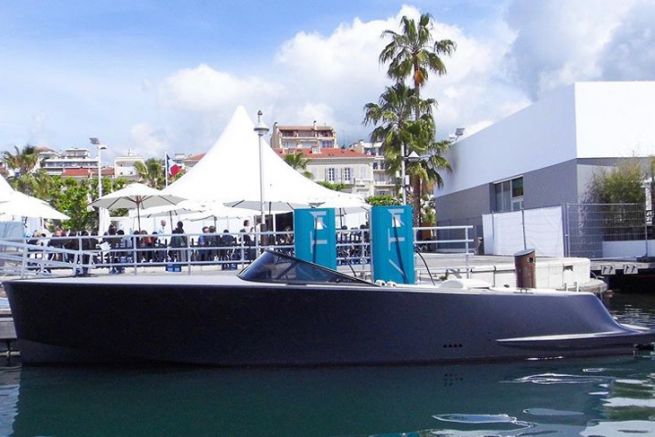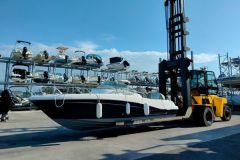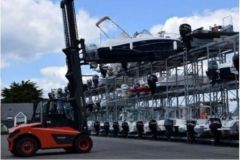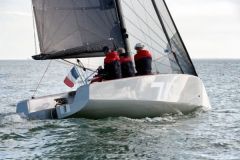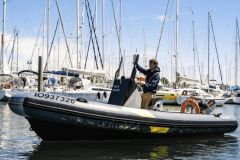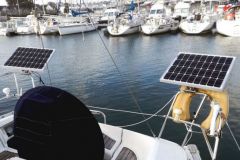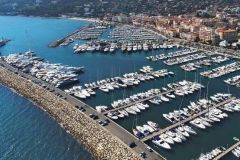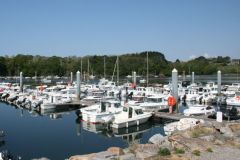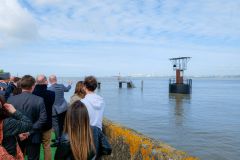Active watch on the arrival of the electric boat
Is the pleasure boat going electric? For many, the question leaves little doubt. This change could have a major impact on marinas. We questioned their managers on their attitude to this evolution. The absence of a really identified strong trend still makes them hesitant. "We look at what is being said or written. We see the products that are coming onto the market. However, you don't have a customer with a main electric motor on his boat, nor any information in this sense on the waiting list. It happens as an auxiliary engine" explodes Jean-Charles Bégouin, harbour master in Piriac-sur-Mer.
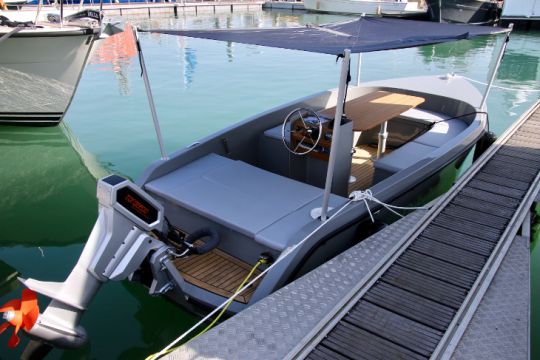
"We're under observation. In the automobile, the revolution is underway. In the boat, I don't have the impression that the technological revolution has been assimilated by the manufacturers. There is no existing solution in mass production, it's still a lot of experimentation. Nevertheless, it would be stupid not to observe what is happening" adds Brieuc Morin, director of Sellor, the port manager of the Lorient harbour.
Port needs still too vague
The mobility law passed by the French National Assembly in June 2019 provides for the obligation for marinas with more than 100 berths to reserve 1% of its berths to electric boats. In spite of its incentive effect, the legislation should not change the port organisation in the short term. "There is still very little demand for charging stations for boats. The subject is not discussed by our marina customers. We are constantly responding to calls for tenders and it is not mentioned yet. The questioning is more about the river and rental boat bases at the moment", explains Florian Cosmao, director of AR Marina, supplier of charging points and electrical installations for marinas.
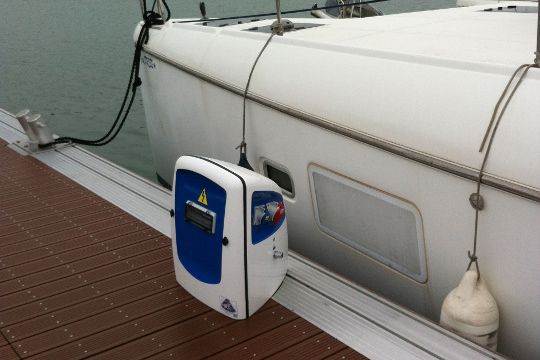
Thinking is still in its infancy, even if the stakes have been identified, as well as potential blockages, as Arnaud Ricard, director of the port of Concarneau, testifies. "We have a study underway on the inner harbour. It will be necessary to respond to the demands of today's yachtsmen, with the resulting equipment. In the fore-port, nothing is planned. Our 2006 pontoon has only one technical gallery, which is already full. 1 charging station per boat, it won't be possible."
For his part, the director of the Sellor stresses the difficulty of dimensioning an infrastructure for boats that do not yet exist. Should we give priority to hydrogen and direct recharging? "We're afraid of dimensioning without really knowing the needs. These are big investments and there aren't yet any experts to know the necessary powers. Nevertheless, it will be an essential subject for 2021," says Brieuc Morin.
In addition to the infrastructure, the offer to the boater will have to be rethought. "One of the themes for future reflection is that of the boat recharging service that we wish to offer our customers and its marketing" explains the harbour master of Piriac-sur-Mer.
A recruitment lever for the yachting industry
Faced with an aging clientele, the electric boat can be a lever for the nautical sector. "We are thinking about acquiring an electric utility boat. By becoming a user of the electric motor, the port can become an advocate," underlines Jean-Charles Bégouin.
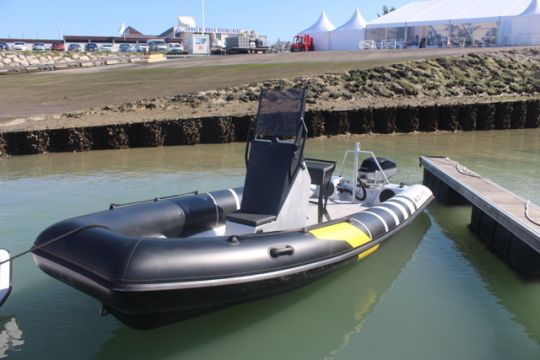
"We are all very concerned about the renewal of our clientele. Electric boats can be a challenge to bring in new boaters. There is a regulatory obligation, but no pressure from users yet. We would need a proactive approach to move beyond the current clean port labels and take the measure of the ecological transition, for example through the production of our own electricity, solar or wave energy, by recycling non-potable water in a closed circuit... We need to see how we can go further" concludes the director of Sellor.

